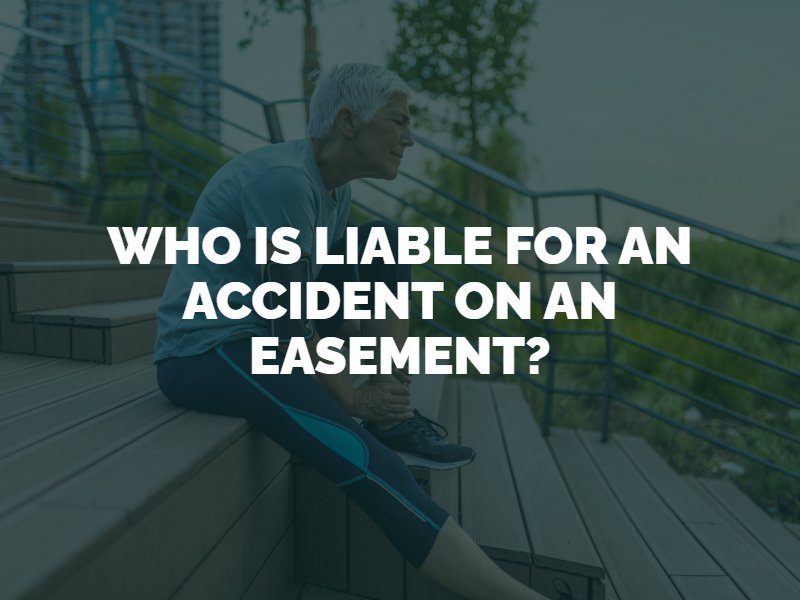Determining liability – the legal term for legal and financial responsibility for someone else’s injury or harm – for an accident that takes place on an easement can be complex. Liability will depend on various factors, including the terms of the easement agreement, applicable state laws and the type of accident. You may need assistance from a Denver personal injury lawyer to navigate this type of claim in Denver.

In Colorado, an easement is the legal right to use another person’s land for a specified purpose. If an easement is granted, it gives someone the right to use another person’s land, but this usage is restricted to protect the rights of the actual property owner. An easement does not pass possession of the land itself to the easement holder. Easements in Colorado are most common in cases involving natural resource transactions and government undertakings.
Yes and no. Traditional premises liability laws make a property owner legally responsible for injuries suffered by lawful property visitors due to defects or hazards on the premises, such as a dangerous staircase or broken elevator. Property owners have a legal obligation to maintain and control their premises in a safe and reasonable manner to prevent harm from befalling visitors.
If a property owner in Colorado does not meet this duty of care, he or she can be held responsible for injuries or deaths caused by property defects or hazards. While Colorado’s premises liability laws apply to easements, they may not impose a duty of care on the person or party who owns the property. Instead, the individual using the easement could be held liable, depending on the circumstances.
Determining who is liable for paying for an accident that occurs on an easement in Colorado often requires an analysis of the legal contract between the property owner and the easement rights holder. This document will contain language that explains or assigns liability to one or both parties in the event of an injury on the premises.
The language of the easement contract may make the property owner or easement holder liable for an accident caused by either party’s respective negligence. However, if the property owner knew or reasonably should have known about a hazard on an easement that injured a victim but took no action to prevent injuries, both parties could share liability.
If a government agency such as a utility company owns the easement, the government itself could be held liable. Claims against the government in Colorado abide by a different set of rules than standard premises liability cases. For example, you may have a shorter deadline to file your claim. It is important to work with an attorney if you believe you have a claim against the government.
Personal injury claims involving accidents on easements are complicated. Determining who is liable for your accident and related injuries may take an in-depth investigation by a law firm into who owns the property and easement, who is responsible for causing your accident, and what the terms of the easement contract say about injury liability. For more information about this type of case, contact our Denver slip and fall attorney at Fang Accident Lawyers for a free consultation.